To claim that I had any inkling of what lay ahead on my recent road trip to Sabah would be a gross misrepresentation. Despite a semi-decent planned itinerary, the moment I set foot on foreign soil, an adventurous spirit took hold, leading to the most unexpected and delightful experiences.
The trip was spurred by a longing to explore Kundasang, a picturesque hill station in Sabah, Malaysia, situated at about 1,900 metres above sea level in the Crocker Range.
Known for its cool climate and stunning views of Mount Kinabalu, Kundasang is a serene escape. Before heading to the town closest to Mount Kinabalu, we stayed a day and a night in Tuaran, just an hour away from Kota Kinabalu, Sabah’s capital.
Tuaran may be small, roughly a quarter of the size of Brunei, but it has its own charm.
Driving from the capital, you’ll pass long stretches of highway under constant construction for the Pan-Borneo Highway project.
Despite its size, Tuaran offers a quaint, welcoming atmosphere. My time there was short, but as they say, new experiences need no set duration. In that brief span, I found joy in the simplicity of this modest district.
Tuaran market
I firmly believe that a town’s true essence can be discovered in its markets. They are the pulse of the city, bustling with life as vendors enthusiastically sell their goods.
The open-air market in the town centre, open every Sunday, offers a glimpse into the vibrancy and hospitality of its people, along with their deep-rooted local pride.
My road trip to Sabah this time coincided with the Harvest Festival, known locally as Hari Kaamatan, held annually on May 30th and 31st. This festival marks the end of the harvest season and the start of a new growing cycle.
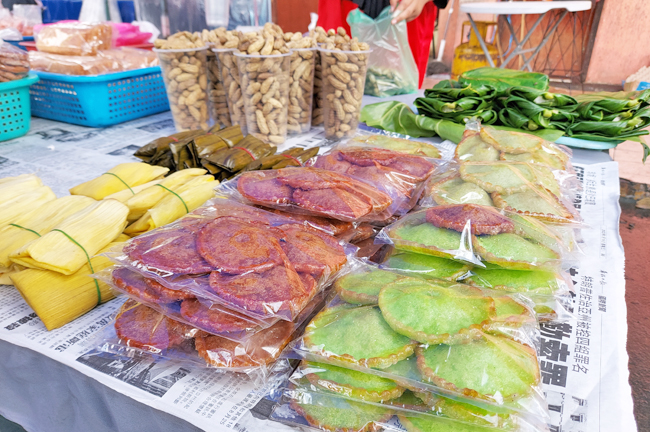
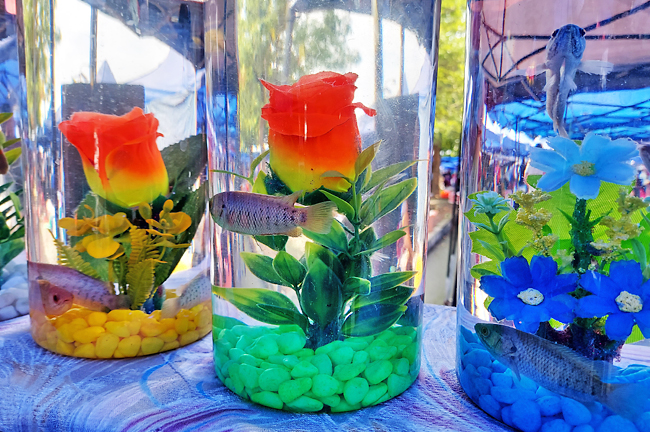
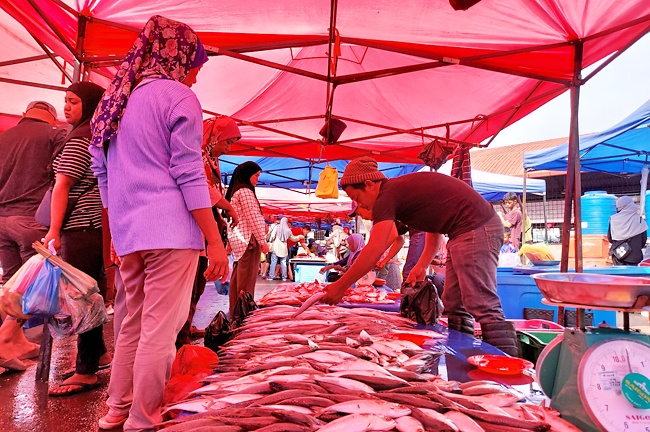
Even the weekly Tuaran Market seemed livelier than usual, as vendors shared that celebrations for the Harvest Festival last for two weeks. Similar to Kota Kinabalu’s Gaya Street Market, Tuaran’s market spans several alleys, creating a sizable walk that I thoroughly enjoyed.
This journey led to a small, somewhat traditional suspension bridge, reminiscent of the way of life of Sabah’s ethnic tribes.
I say “somewhat traditional” because the bridge still uses wooden planks for its floorboards, some of which have rotted. So, dear readers, please consider the risks before venturing onto this old bridge.
Although there is a larger and more famous bridge called the Tamparuli Suspension Bridge in Tuaran, time constraints meant we had to settle for the quaint market bridge.
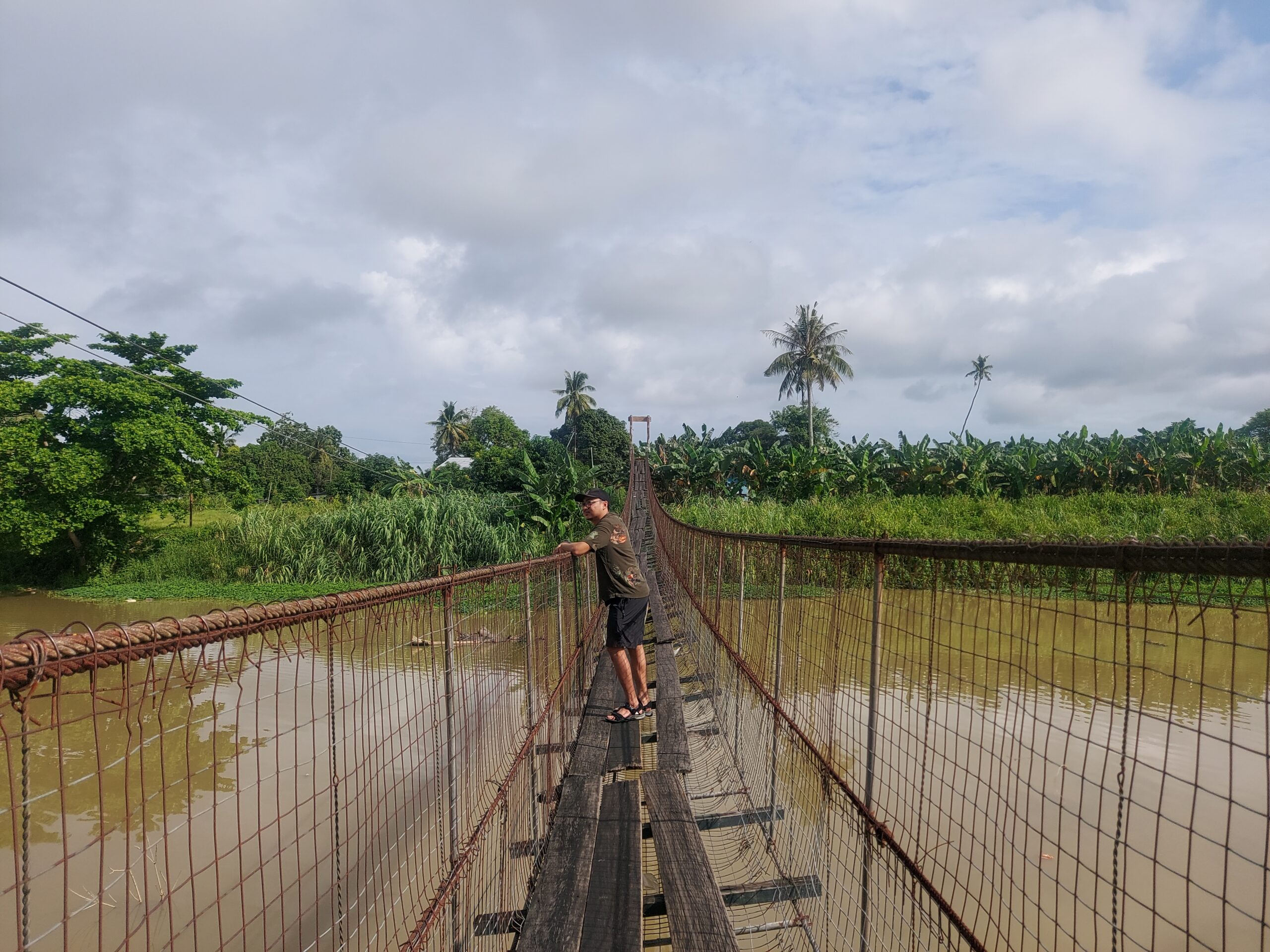
Roasted coconut
It’s quite surprising, but in all my 30-plus years, I’d never thought about trying coconut water and its flesh hot, not even at room temperature.
For me, coconuts were always associated with cool refreshment – that first sip on a hot day that makes you exhale with relief. But would you believe that hot coconut water tastes even fresher?
Roasted coconut or kelapa bakar as the locals deem, it has become a daily staple for the people of Tuaran.
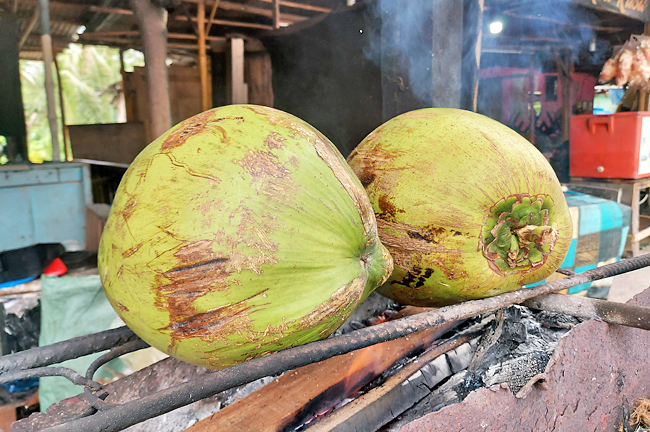
Just as the name suggests, roasted coconut involves roasting a mature coconut over an open fire until the husk turns black. It has become a signature product of Tuaran, according to 40-year-old Upi, who runs a stall on a road known for its roasted coconuts and barbecued clam.
The area, Kelapa Bakar Kampung Salut, is simply a stretch of road through an industrial district. On either side, you’ll find rows of stalls – 66 of them, as per Upi – each proudly displaying banners advertising their two most popular dishes in bold letters.
Roasted coconuts, a more traditional way to consume coconut in Indonesia, offer nearly the same benefits as fresh ones, as both contain antioxidants and anti-inflammatory properties.
According to Upi, heating or roasting coconut water further activates these properties, allowing them to work more actively within the body.
“We locals tend to view them like a remedy. When we’re feeling under the weather, roasted coconuts are often our go-to for relief from symptoms.”
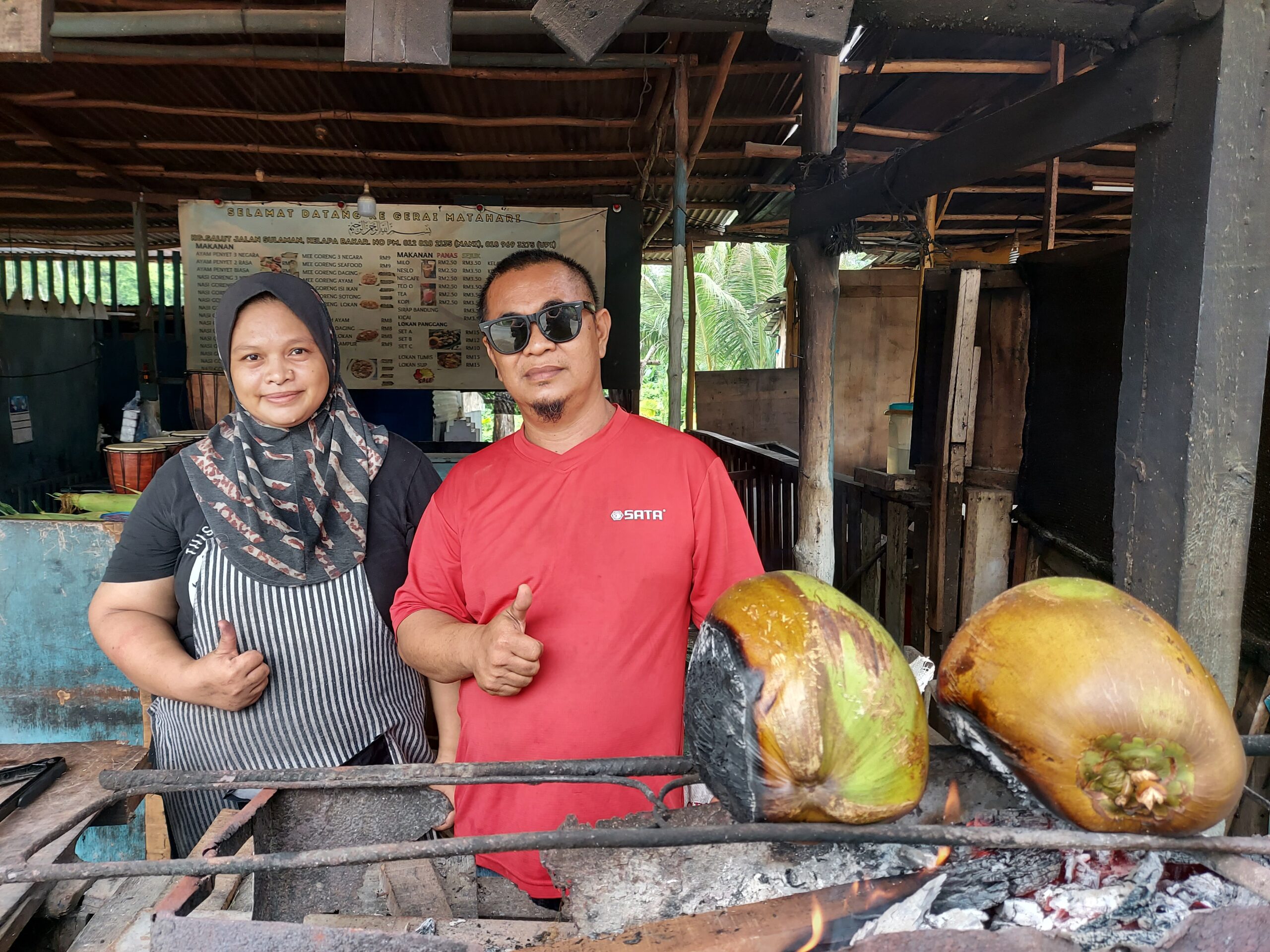
When it comes to taste, I can’t say if roasted coconut is any different from regular fresh coconut, but the heat intensifies the coconut’s flavour, providing a comforting warmth to the body as you sip.
Once the water is consumed and the coconut is split open, you’ll notice that instead of the usual softness, the flesh dries a tad bit and thickens. Honestly, it felt akin to munching on a biscuit or a carrot, if anything.
There isn’t much to say about the taste, but it’s incredibly filling. It made for a perfect road snack on our journey to Kundasang.
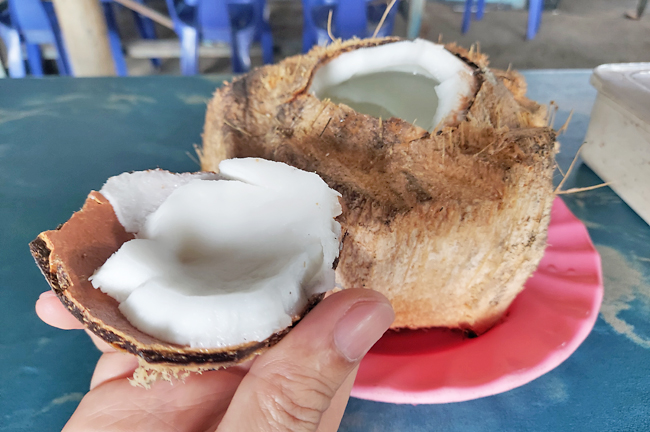
As I conclude this initial chapter of my Sabah road trip, I’m eagerly anticipating the next segment which will explore the journey to Kundasang from a beginner’s viewpoint.
It’s been a series of unexpected and delightful experiences thus far, and I’m excited to continue sharing Sabah’s beauty and charm. – WARDI WASIL






